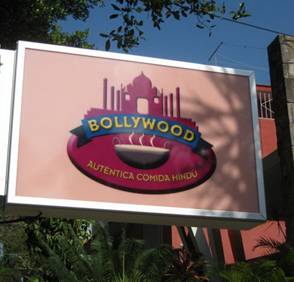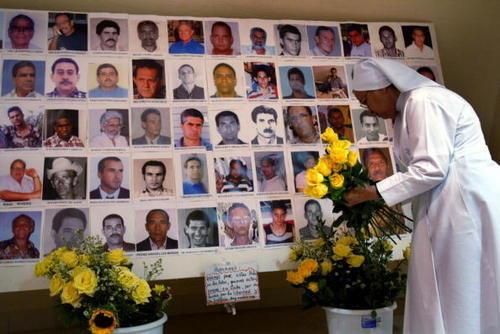
I remember that distant but unforgettable 18 March 2003. Two friends of mine went to my home after lunchtime and informed me that the home of Pedro Arguelles Moran was filled with State Security agents.
I visited the residence of my friend and colleague, and I began to make some phone calls to the capital, denouncing the situation of Arguelles. I was shocked to hear other reports coming from leaders of the peaceful dissidence and independent journalists about what was happening that day. The regime of Havana was attacking all the democrats with all its power. I discovered that Arguelles was just another one of the victims of that oppressive wave, and that I was not about to escape that list. Just a few days after, I would find myself standing just a few feet from the cell where my friend was.
All of us who were convicted faced an unpredictable and difficult path. On one hand, the international scene benefited the dictatorship, or at least that is what they thought. The Iraq invasion and other military conflicts were what captured the world’s attention during that moment. The regime took advantage of this context in order to arrest the members of the group of the 75, and even worse, to execute three young black men for trying to escape the island without hurting anyone else in the attempt.
However, international pressure did not take long to respond with our situation. From diverse parts of the world, voices began to demand the Communist Cuban regime release us, while others condemned the infamous executions. Amnesty International declared that all 75 of us were prisoners of conscience. Soon, we would see the results of such actions.
A few months later, the regime had no choice but to release the most sick members of our group. Afterward, any other releases happened in a very slow manner, as a way of the rulers of our country saying that they are the ones with absolute power.
During each anniversary which I spent behind the bars, I wrote about the subject. This year, I wanted to publish something simple, but something that would prove our innocence and our victory. They sanctioned us to jail sentences which ranged from 6 to 28 years behind bars. Today, 8 years after that oppressive wave, the majority of the 75 are already out of jail thanks to the sacrifice of our brave brother, Orlando Zapata Tamayo, the dignified Ladies in White, the determination of Guillermo Farinas, the growing international pressure, and the strengthening of the internal dissidence. Only Felix Navarro and José Daniel Ferrer remain behind the bars without justification.
Each day that passes, the dictatorship displays more and more signs of weakness, and it does anything in its power to try and isolate the peaceful Cuban opposition. Luckily, not everyone believes in their absurd tricks and the truth spreads throughout the population that is sickened by the same government rhetoric. Our path has been thorny and torturous, but it has taught us that fear is conquerable and that prison is not the last place on earth.
The Black Spring of 2003 was far from being a hard blow to the opposition, like so many people say. I would say that it was instead a serious misstep of the Cuban regime. Those days remained etched in my memory, marked forever. I’ll remember that hate and intolerance which kept me from my family, my neighbors, and my brothers-in-struggle. But at the same time, I will acknowledge the fact that our fates made the world aware of our reality — a reality that has been distorted by those who tightly hold power without measuring consequences which, in the future, will be reproached by another generation.
Cuba does not belong to one group or another, Cuba belongs to every Cuban. Sadly, the nation has been mistakenly associated with one party, one ideology, and the whims of one man.
While I write these lines, there are mobs led by the political police harassing the Ladies in White while other dissidents are being arrested just for trying to commemorate the 8th anniversary of the Black Spring.
Cuba needs its children, and her children need her. We must all fight alongside each other so that an oppressive wave like that of the Black Spring 2003, and other similar events which have plagued our nation, will never happen again. Together, we can do it.
March 21, 2011

 The first time I heard Jimmy Carter was in 2002. My memories are hazy but one moment sticks in my mind from his speech at the University of Havana’s Great Hall. It still makes me laugh to remember Hassan Perez — who at the time hadn’t yet been ousted and was still heading up the Young Communist League — launching a supposed question at the president, fired off in a machine gun staccato and lasting about three minutes. Carter gently asked him to repeat it, apologizing for not having understood. It was an historic day for Cubans, because in the full light of Cuban television we learned about the Varela Project and that Osvaldo Paya had collected eleven thousand signatures to change the Cuban Constitution. The Varela Project was ignored and vilified by the government, the Constitution was changed for the worse, and the Black Spring arrived. I was twenty.
The first time I heard Jimmy Carter was in 2002. My memories are hazy but one moment sticks in my mind from his speech at the University of Havana’s Great Hall. It still makes me laugh to remember Hassan Perez — who at the time hadn’t yet been ousted and was still heading up the Young Communist League — launching a supposed question at the president, fired off in a machine gun staccato and lasting about three minutes. Carter gently asked him to repeat it, apologizing for not having understood. It was an historic day for Cubans, because in the full light of Cuban television we learned about the Varela Project and that Osvaldo Paya had collected eleven thousand signatures to change the Cuban Constitution. The Varela Project was ignored and vilified by the government, the Constitution was changed for the worse, and the Black Spring arrived. I was twenty.
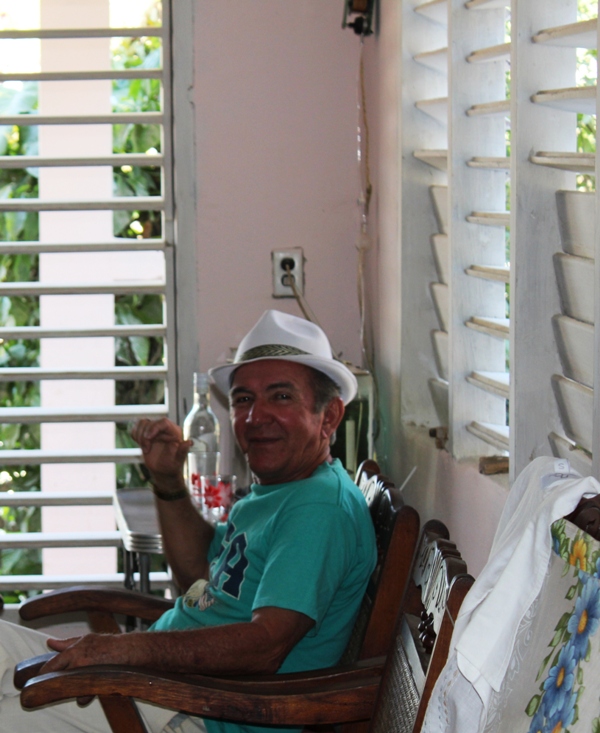
 Here is the final sentence against Yamil.
Here is the final sentence against Yamil.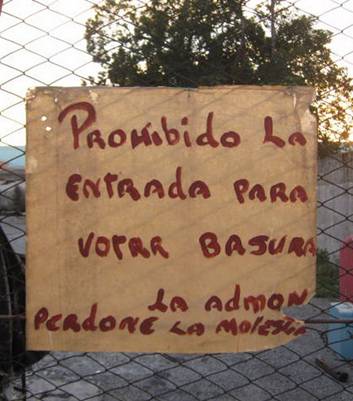
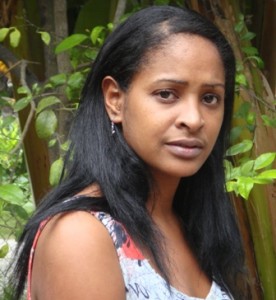 Larisa Diversent, 30, returns to the fray. Having received her law degree four years ago, this young black lawyer always seems to have a loaded agenda. Since 2007 she has been one of the busiest and best independent journalists in Cuba.
Larisa Diversent, 30, returns to the fray. Having received her law degree four years ago, this young black lawyer always seems to have a loaded agenda. Since 2007 she has been one of the busiest and best independent journalists in Cuba.
